Loving stone
Issue two: short fiction by Diana Dima
I married a creature of stone, though they are the curse of our land.
It happened like this: I made too much plaited bread on Sunday and took some to my friend, Dana, who lived in the woods beyond the lake. I met the creature on the trail by the water, like in the stories my mother told me and her mother told her. Out of nowhere, it blocked my way: the great stone feet, the towering body, the carved face blotting the sun. My skin prickled in the sudden cold.
Something in me took hold of my arm, lifted the basket full of bread, held it out as a gift; but the creature tossed it into the water. ‘What use do I have for this? It reeks of rot and ticking clocks. Bring me something else.’
I turned back towards the village, and when I looked over my shoulder the creature was gone. I knew then that I’d return to the lake the next day and every day after that.
I couldn’t help it. People say one look from a creature of stone is enough to wake the poison that’s lurking in our blood. You might be old and ready to die peacefully, surrounded by your grandchildren, and the stone creature could be waiting on your way to the market one Sunday morning. There’s nothing you can do: you go back with gifts, at first, then with everything you own, until there’s nothing but yourself–your hands, your heart–and the stone swallows them all.
It's the beginning of the end, they say, bowing their heads as if you were already dead. Except it wasn’t for me, not in the way they meant.
My spouse’s name was Ceri.
There was no grey in my love’s face, no hardness to my love’s skin, no slowness to my love’s hands when they moved to comfort or tease. There was, in my love’s heart, a stone hard and unyielding that sometimes made her cough and claw at her chest, and sometimes made her walk to the lakeshore in the night and stand, looking at the water, until I came to bring her back to bed. But mostly we did not think about it.
Ceri’s human body always changed. It might never find a shape it could hold, she warned me, as though this was the worst news a spouse could get. Sometimes she wore an old woman’s body, soft and large and comforting, and sometimes a young man’s, lean and tall. On other days her body wavered, skin wrinkling and stretching, hair growing and greying, features rippling like water. But I could always see Ceri’s face behind the beard or beneath golden curls, the same brown eyes with a pinprick of grey in their depths. It wasn’t hard to love her, though it was hard when the whole village shunned us. They thought us cursed, or at least unnatural, and so we moved away to the edge of the forest.
For my first wedding I had rented a ballroom where one hundred people ate and danced through the night. But when I married Ceri on the lakeshore, only Dana and my mother came. Our officiant was paid handsomely, but not enough for him to hide his disgust as he married us.
We lived close to the road, and so we made our house into an inn. Stone-eyed eagles brought rocks from the mountains and oak logs that took an entire flock to carry. Ceri fashioned them into walls and beams until the house was large enough. I painted the sign that said The Loving Stone.
The travellers who came to the inn didn't know us and didn't judge. They had seen things stranger than us, and told stories about them; sometimes they bought my paintings. We grew fat with happiness and tried for a child. My mother came often, chasing me away from the garden and picking the beets and lovage for us. She made soup–purple and fragrant and so sour that it made our mouths pucker–and as we sat on the sofa she looked at us through the steam in a way that made even Ceri understand what mothers were.
Sometimes at night Ceri dreamed she had turned back to stone. When she writhed in her sleep I’d wake her up, watch the grey recede in her eyes. The nightmare would hang between us for a while, and I’d remember words she’d said to me on the lake shore, the day she became Ceri. Should your love falter once, the lake will turn to stone. Should your love falter twice, the woods will turn to stone. Thrice should it falter, I will turn back to stone and take my place in the mountains.
She’d be thinking them, too, but we’d lie in silence until we fell back to sleep.
I don’t know why it was different for me. Maybe it was that I’d looked, really looked, into the creature’s face, before turning back to the village that Sunday. I didn’t buy extravagant gifts for the creature. I didn’t set fire to my house, like my great-grandmother was said to have done, so that she might bring her creature the ashes. I knew it wouldn’t be enough.
For hours I paced, taking stock of all my possessions. The fire in the sitting room went out, and the portrait of my late husband above it sank into shadows. Before dawn, I made up my mind. I cut my hair short, gathered the greying curls that used to fall to my hips and wrapped them in linen. I took them to the lake.
The creature waited for me, stone fists crushing birds mid-flight, their bodies raining down gravel and dust. I held out my gift.
‘This smells like flesh leaving bone, bone turning into stone. Bring me something else.’
I walked back to the village, my steps stone-slow. My mother came to see me late that night.
‘My girl,’ she said, ‘come with me tomorrow. I’ll take you across the mountains to a land without curses. We should have left long ago. It won’t be able to follow you there, so eventually you’ll heal. Sometimes only the fingers turn to stone. At most the arms, or the feet, or the hips. It will be much better this way.’
I held her while she wept. I didn’t speak. No one could escape a creature of stone: not with rope, not with chains, not with miles in between, not with willpower and the love of others. My mother knew this; she didn’t ask me again.
After I became pregnant, there were no nightmares for weeks.
‘Maybe I won’t turn back into stone,’ said Ceri one night, her hand resting on my belly.
‘You won’t,’ I said. ‘Didn’t I promise?’
I was being foolish, but I think that’s when she liked me most.
The next day, after Ceri had gone to the town market, I woke up lying in blood. It gushed and gushed out of me, and I knew then that it was over. My body felt rough, a half-made thing.
The pain didn’t ease all day. I washed the blood out of the sheets before Ceri arrived with bread and pastries from the bakery in town. She wore a body neither young nor old, brown eyes warm and deep-set in the earth of her face. She sang while making dinner and I couldn’t bear to tell her anything.
That night in bed Ceri pressed her body to mine and I pretended to be asleep.
I don’t know if I slept at all. The pain rose and fell through the night, and I thought of blood and lonely winters, or maybe I dreamed of them. I thought or dreamed of my first husband waiting for a child, and of how he had died, and of the snow falling at his funeral.
When first light crept in, Ceri was not in bed. I wrapped a scarf around me and went to find her. I walked the trail by the lake where we had first met, but the lake had gone. In its place there was only stone, veined with charcoal and black, and Ceri stood looking at it.
‘We’re losing our child,’ she said when I stopped next to her.
‘I wanted to tell you.’
I still couldn’t say it, even then. What could I tell her, who had never been somebody’s child? In that moment I wished someone else stood on the lakeshore, someone who’d cry and curse with me. It was a terrible thought and, as Ceri pulled me to her, I started sobbing.
‘It’s not your fault,’ she said. ‘Maybe we can fix it. Maybe we can turn the stone back into water.’
We never did, but everything else went back to how it had been. Sometimes I’d look at my softening body in the mirror and wonder which part of it would fail me next. But we were happy again, Ceri and I, and we tried for another baby. While Ceri slept, I wished for it, and then unwished it; I thought my body might smother it like the first. But there was no other baby. Soon I stopped looking in the mirror altogether.
On the third day I went to meet the creature empty-handed. I had thought of a different way.
‘I have something for you,’ I said. I lay down at the creature’s feet and went to sleep.
The creature stepped into my dream and said, Nobody has ever slept next to me.
This is my gift for you, I said.
Aren’t you afraid you’ll turn to stone? asked the creature.
Aren’t you afraid you’ll turn human?
The creature laughed. I took the stone hand, warm blood running just beneath the surface, and together we walked into the mountains. We climbed all the way up to the highest peak. There we stopped to look around and the creature wept. Every boulder was a creature of stone who had grown tired of roaming the earth. They couldn’t die, so they stopped and rested until their limbs lost the memory of movement and stillness felt almost as peaceful as death. They were cursed like we were.
Don’t worry, I said, we’re safe now, you and I.
My friend Dana brought me a canvas as large as a wall. ‘I’ll never paint enough to fill this one,’ I said while we carried it into my workshop.
After she left, I stood in front of the canvas and imagined it covered in things that couldn’t be said. I picked up a brush and mixed oil paints into grey: light, and silver, and dark. I painted until my wrist hurt.
Ceri came home and we ate the soup my mother used to make, though it didn’t taste the same as hers. Ceri had walked to the stone lake again, and maybe through the forest and into the mountains; she’d been gone the whole day. The stone in her chest had grown heavier every year, and sometimes I could see a shadow of it in her eyes. She didn’t like to talk about it, so after dinner I nestled in her arms and we spoke about how well the inn was doing.
‘How’s your painting going?’ she asked.
Her hands in mine were thin and withered. She found it harder, those days, to wear a young body.
‘Same as always,’ I said, not wanting to pull at the safe blanket that cocooned us.
The next day, while Ceri welcomed the guests, I locked myself inside the workshop and painted. I mixed grey after grey, until graphite and slate grew as distinct as red and blue. I painted mountains of stone and stone trees and a stone lake. I painted my spouse: not Ceri, but the creature I’d met that day on the lakeshore. When I left the workshop, I locked the door behind me so that Ceri wouldn’t see the painting.
‘What’s on your mind?’ Ceri asked that evening, wearing a face strangely like mine.
I asked her about the stone in her chest, and if there was some way to rid her of it.
Her face darkened. ‘There will always be a stone, my love. Promise me you won’t trouble yourself with it any longer. Promise you’ll trust me on this.’ And because the brown eyes with their seed of grey were boring into mine, I promised.
I finished the painting in a week. After I traced the last line, I looked at it for a long time, until the greys started to blur together. Dana came to see it that evening.
‘This is wonderful,’ she said, stepping back to take it all in. ‘Nobody else could have painted this. Nobody has ever seen a stone creature up close, not unless it was the last thing they saw. The Royal Gallery would pay a fortune for it.’
‘You think?’ I asked, feeling my cheeks burn. Then I caught myself. ‘No, I can’t sell this.’
‘People should see it,’ said Dana. ‘Think about it, will you?’
I told her I would. After all, paintings were meant to be seen.
Ceri had gone out and didn’t come to dinner. At first I didn’t worry; it wasn’t so important, after so many years, whether we ate together. But after a while, I knew something was wrong, and went looking for her.
She looked thin and small, sitting under an oak by the stone lake, and as I got closer I saw that the oak was made of stone. All its branches were perfectly still, and all the other trees and their bird nests and squirrels had turned to stone too.
‘What’s this about?’ I asked, and Ceri turned her head towards me. Moonlight turned her skin grey and her eyes were sad. I couldn’t lie to myself any more then. I slumped next to her.
‘I should have shown you the painting,’ I said. ‘No, I should have left it unpainted in the first place.’
‘I know enough about humans now,’ said Ceri, ‘to understand why you didn’t.’
When I woke up that day on the lakeshore, the creature knelt over me, and it wasn’t a creature any more but a person, warm-bodied and brown-eyed and full of worry. As I watched her, she changed: from a woman into a man with skin like old maps; and then again into someone younger, red hair crowning a sharp face. But her eyes stayed the same, and every face she wore I found beautiful.
I took her hand. There were legends about this sort of thing – legends our mothers would only warily tell, so unlikely was the hope they brought. Holding her hand, I recalled them: they spoke of great love between human and stone.
She’d been watching my face carefully.
‘Think before you choose this,’ she said. ‘If I’m wearing human skin, you’ll need a heart of stone.’
I didn’t understand, but I said, ‘I’ll do anything.’
That was when she told me about the curse, and what would happen if my love for her faltered. She said, ‘Thrice should it falter, I will turn back to stone and take my place in the mountains.’
‘It will never falter, my love,’ I said, though I was too old to say anything like this.
Ceri said it made no difference, so I sold the painting, and in the weeks before they came for it, I kept it covered with a bedsheet by the front door. I don’t know if Ceri ever lifted the sheet to look at it. I think she must have, walking past it so often. She was gone for days at a time now, and the stone loomed so large in her chest that on the bad days her whole body turned grey and dull and slow.
‘I thought this wouldn’t happen once you married me,’ I said one night, after she came home hungry and shivering.
‘It’s a small price to pay, my love. Just something I have to carry. Promise me you won’t worry about it.’
I promised, and for a second I thought the curse would come true and Ceri would turn to stone, because how could I stop worrying about it? But we were past such small lies, and life went on.
They took the painting to the Royal Gallery and, soon afterwards, I learned that it was destroyed in a fire. I told myself I was sad, but really I felt relief.
I painted less and fewer travellers bought my work, because we only kept the inn open in summer. The work of keeping a house and growing food and staying alive filled more and more hours each day. Ceri didn’t change much any more, and most of the time wore the same thin body, silver hair braided, hands spotted with age. Our house had grown quiet, and we were not perfectly happy but happy enough, except for the days when Ceri’s eyes turned grey and she left the house without a word.
On one of those days, her absence grew so heavy I couldn’t bear it any more, and so I went to the healer who lived on the other side of the forest. There was no path to lead me there, only half-remembered stories. I stepped over nettles, pushed through spiderwebs, climbed over rotting oak logs. With every step I doubted myself, yet resolved to take another, until I arrived at the healer’s hut, which loomed dark and overgrown with vines.
I knocked on the door and held my money in outstretched palms. The healer stooped in the doorway, a sly grin on his face. ‘Are you sure you want to pay for your misfortune?’
‘I need help,’ I said. ‘It’s my spouse, who has a stone in her chest, and until it’s gone she won’t rest easy. It weighs on her and makes her cough. It makes her cry and gives her nightmares. It makes her run away from me for days on end.’
‘Very well,’ he said, and I followed him into a room lined with shelves. He searched for a long time until he found a vial filled with red liquid. ‘You didn’t ask for advice, so I won’t give you any. Give this to her and she’ll spit out the stone.’
I hadn’t thought it would be this easy. He held out the vial and for a second I wanted to turn and run. I thought about the curse. But this is love, I thought, I’m doing this for her. I took the vial and went back home.
I made my mother’s soup. I put in handfuls of lovage and purple spinach that turned the broth a deep red. I hid the vial in my pocket.
Ceri didn’t come home that night. I made the soup night after night, and in the daytime I went looking for her. I didn’t find her by the stone lake, not in the stone woods. I didn’t find her in the mountains, though it would have taken months to search them. She came back after a week, disheveled and thin, her clothes in tatters.
‘What happened to you?’ I asked as I held her, wrapped her in blankets, kissed the thin face.
‘The stone,’ she whispered. ‘Getting stronger all the time. But it’s a small price to pay… I have to stop listening to it …’
‘Don’t worry now,’ I said, rocking her frail body in my arms. ‘Come, I made fresh bread and warm soup.’
The bread was plaited, golden, still warm in the middle. The soup was dark and fragrant. I poured the healer’s red liquid into it with shaking fingers. Ceri lifted a spoonful to her mouth. A shadow still tinged her face grey, cooled her brown eyes. It was receding now, going to sleep until the next time it would draw her out of the house, away from me. She drank the soup and its warmth colored her cheeks.
Then her eyes went wide.
‘What did you do?’
Her hands went to her throat and she gasped for air. She jumped to her feet, upending the table. Soup scalded me as I ran to her, held her.
‘Spit it out,’ I begged her. I held her as she retched and coughed, and something flew out of her mouth–the stone, shooting straight through the window, sending shards of glass everywhere. We cowered in the wrecked kitchen, and Ceri was no longer choking but sobbing like a child, her whole body shaking and shaking. ‘Ceri, my love, hush. It’s over, we’re safe now, hush.’
She pushed me aside with hard, cold hands, and when she stood up, she was no longer Ceri. Instead, a creature of stone towered over me, skin grey and hair grey and eyes grey with a speck of brown in their depths.
‘Don’t be sad,’ she said. ‘It’s just the way of things. I told you at the beginning: no stone can have a human heart.’
I begged her, ‘Don’t go. Stay as you are.’ But she walked to the door, and nothing, not even my body blocking the door, blocking the road, would stop that walk. I bruised when hard stone pushed me, but my love could no longer tell that I was hurting. So I followed her into the mountains, and together we climbed the highest peak. We stopped at the top, wind roaring all around us, and the creature knelt beside the others. They had once looked like rocks to me, but now I could see limbs, weathered and gnarled, heads bald and bowed.
‘Look at me while I grow still,’ said the creature of stone.
I sat among the rocks and looked into the brown in her eyes. I looked at her until I could see nothing but stone.
Diana Dima is a writer and neuroscientist living in Canada. Her speculative fiction has appeared in Strange Horizons, khōréō magazine, The Deadlands, and elsewhere. You can find her online at www.dianadima.com.




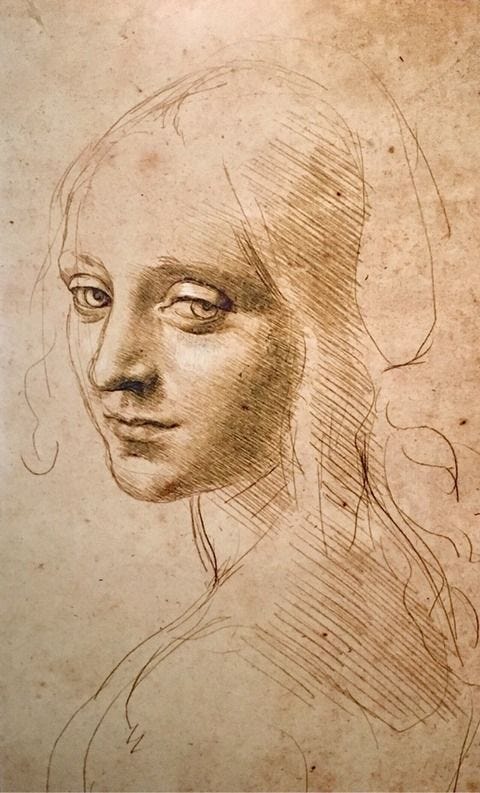

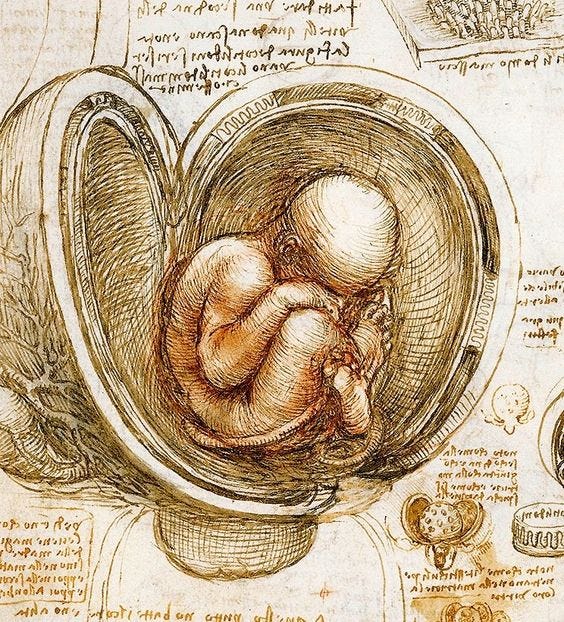

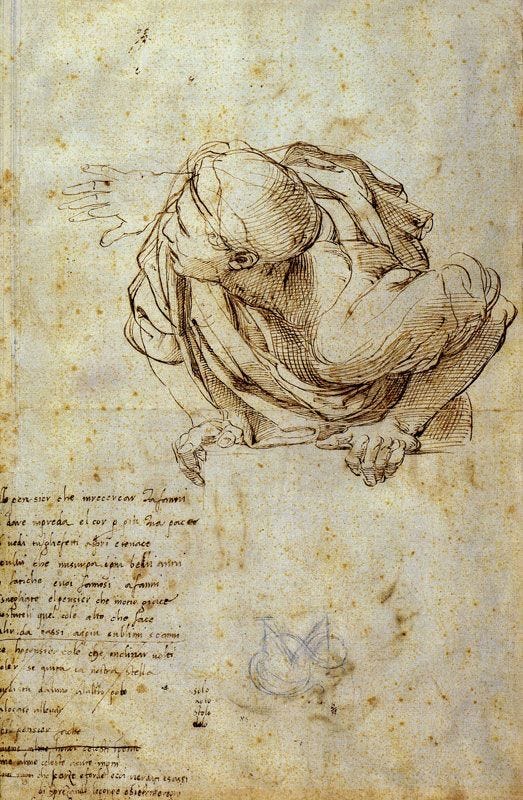
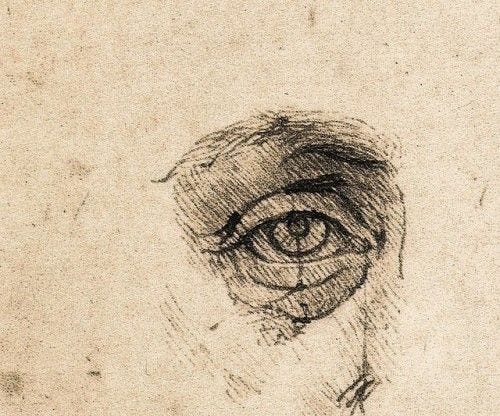


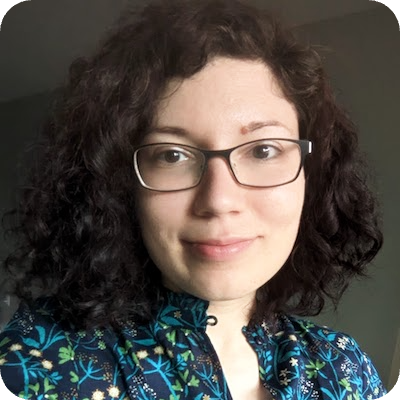
What a sad, beautiful and riveting story, well told!
This is a stunning story, I love how timeless and raw this feels, beautiful idea and concept 💛